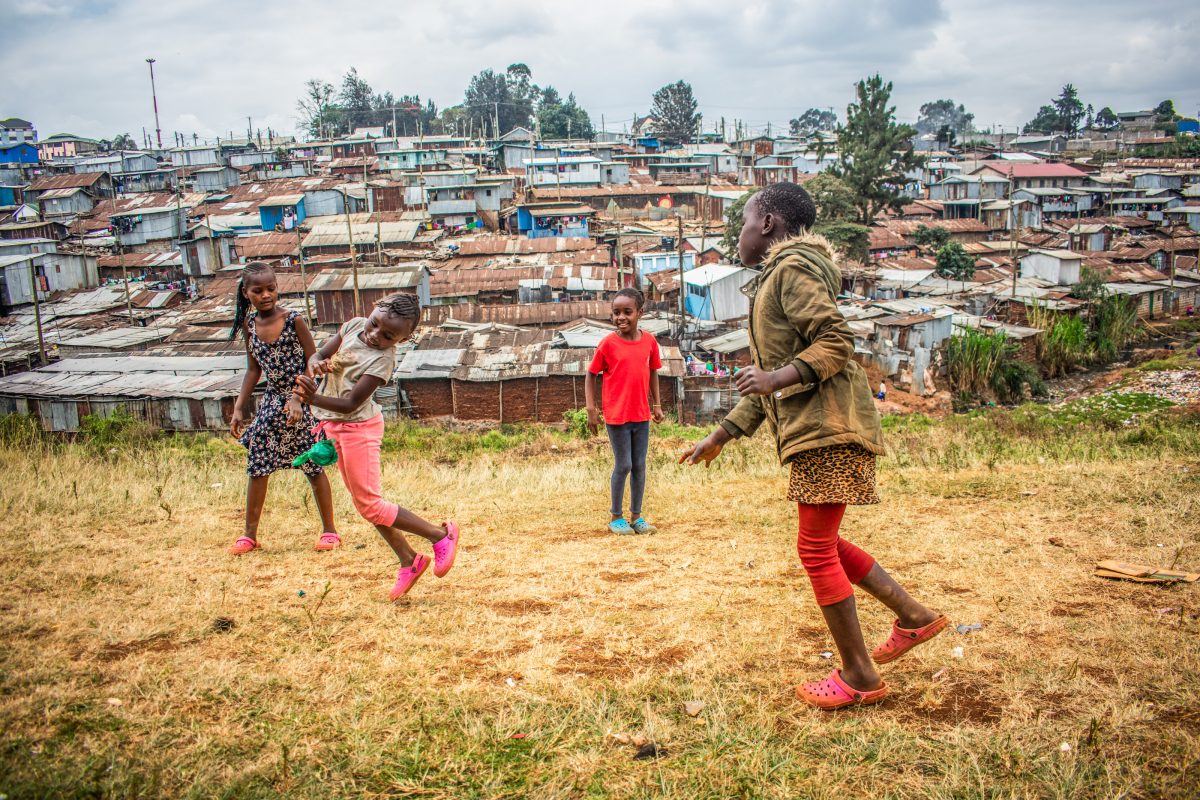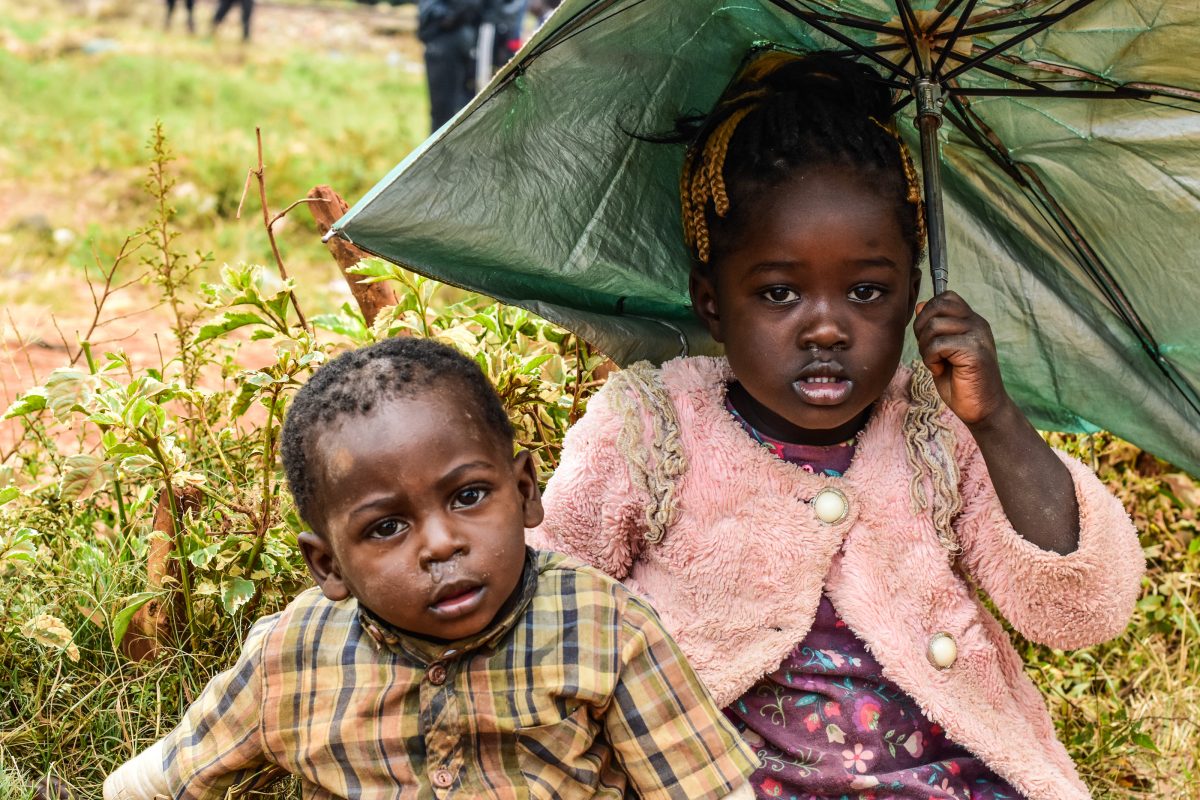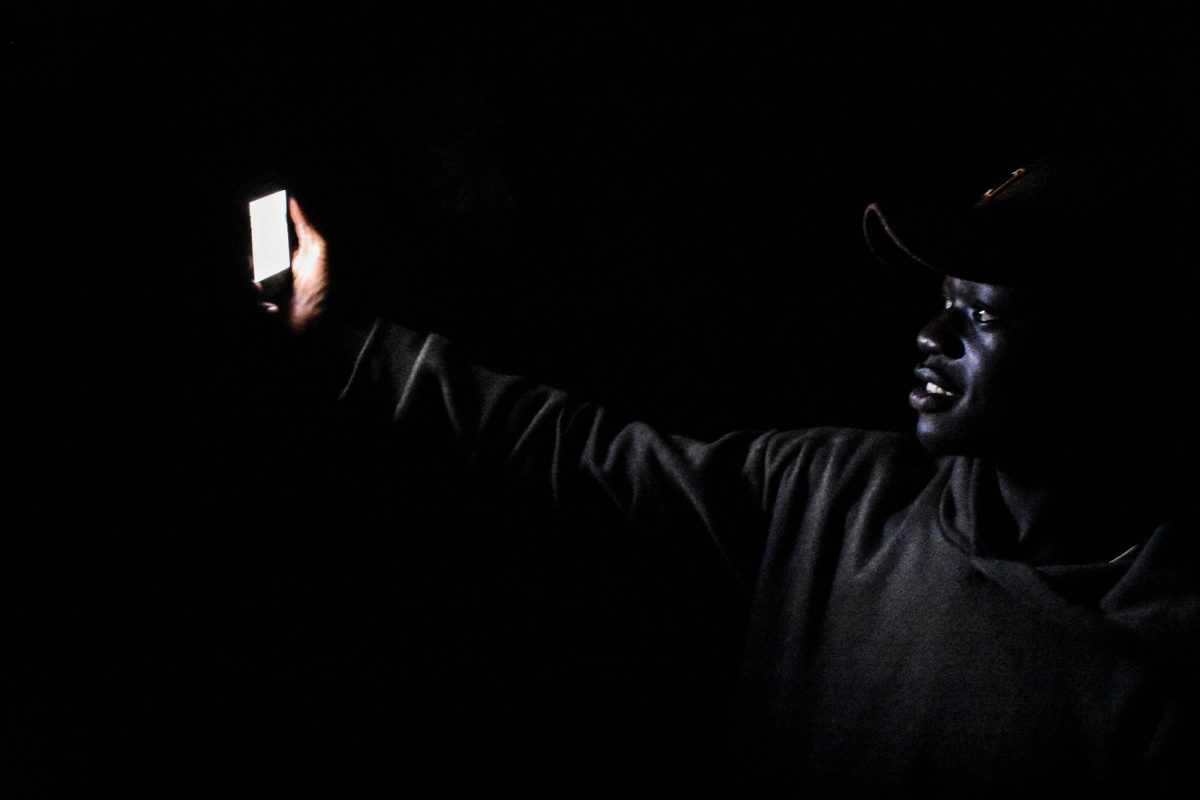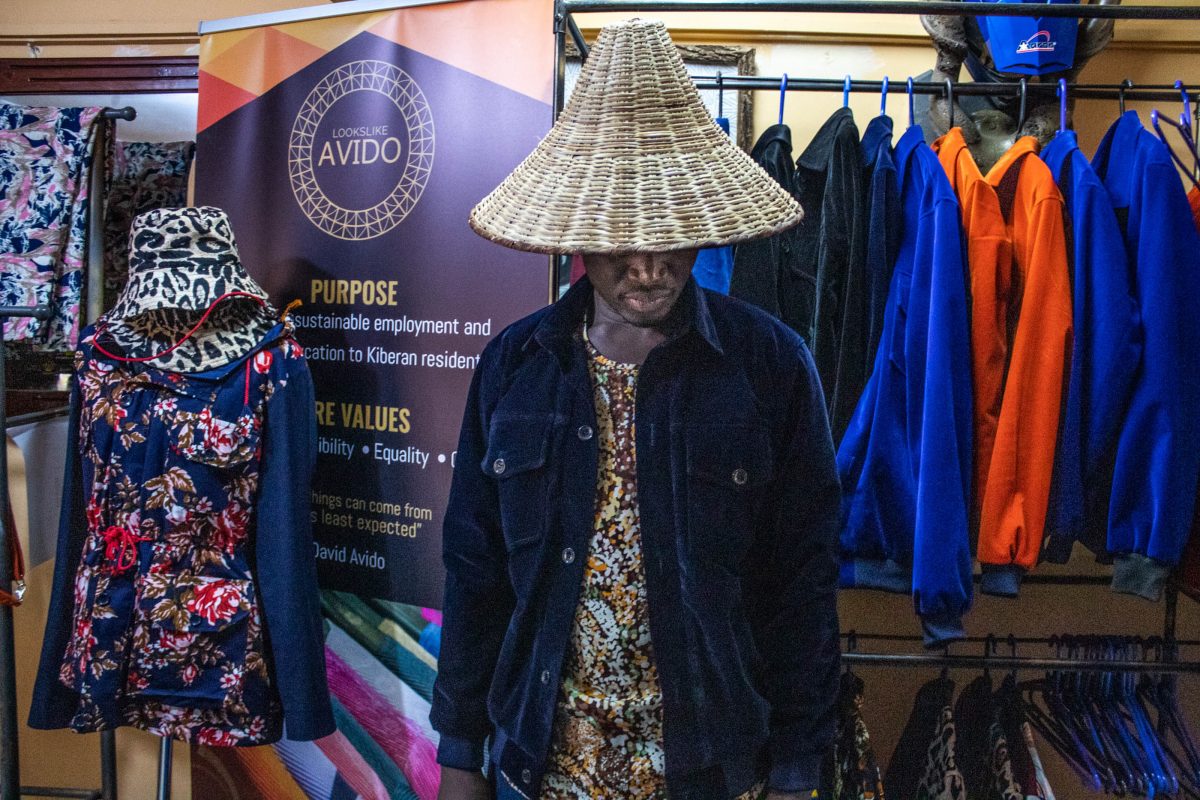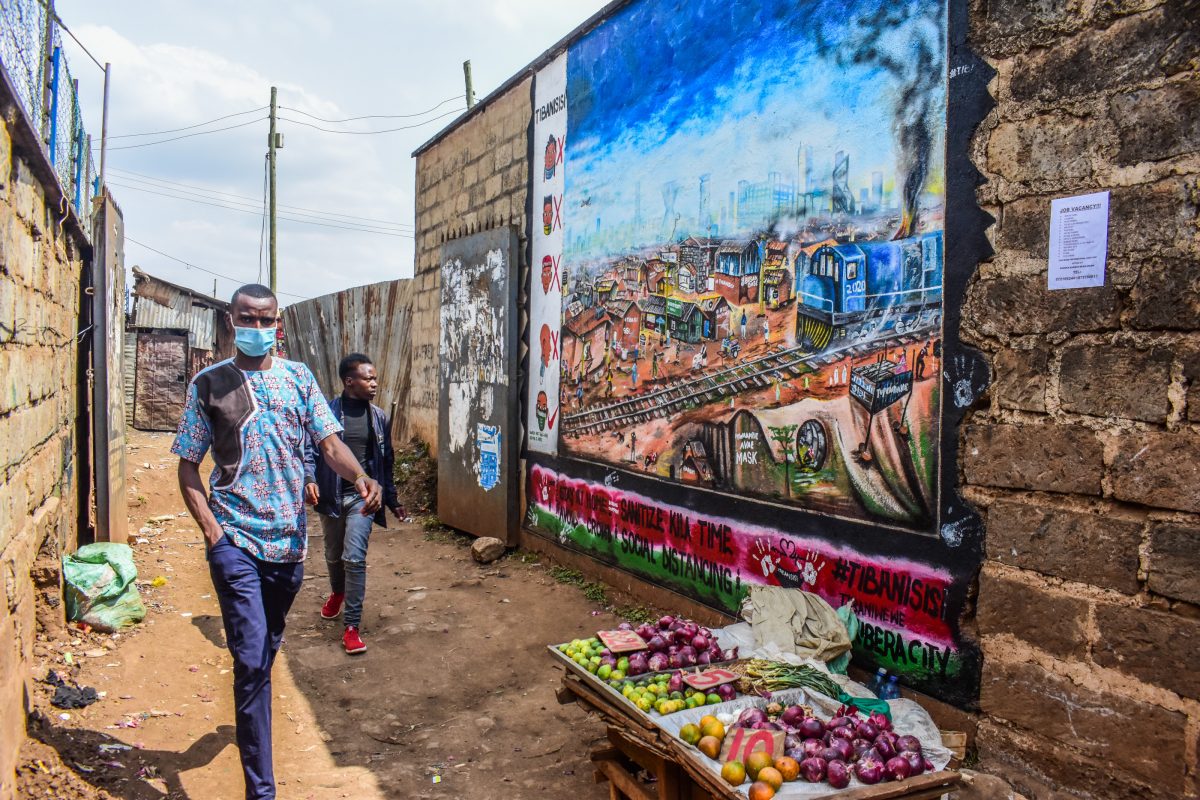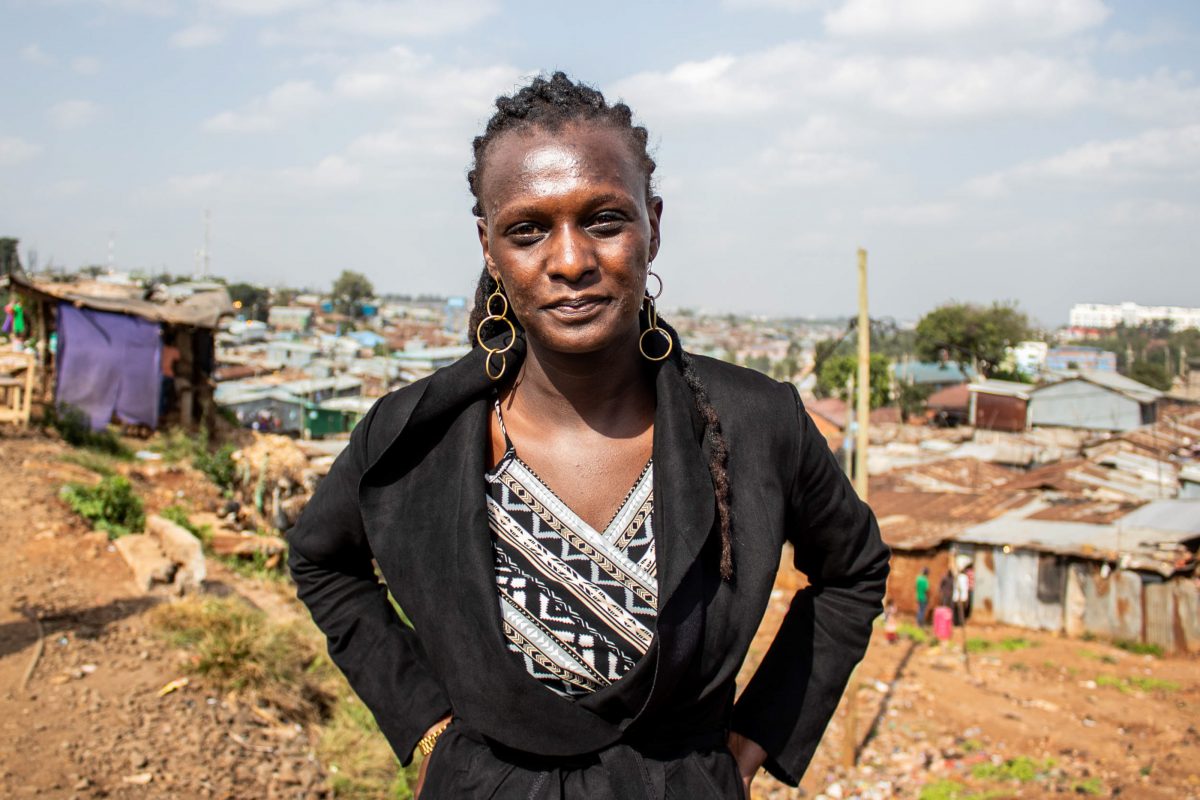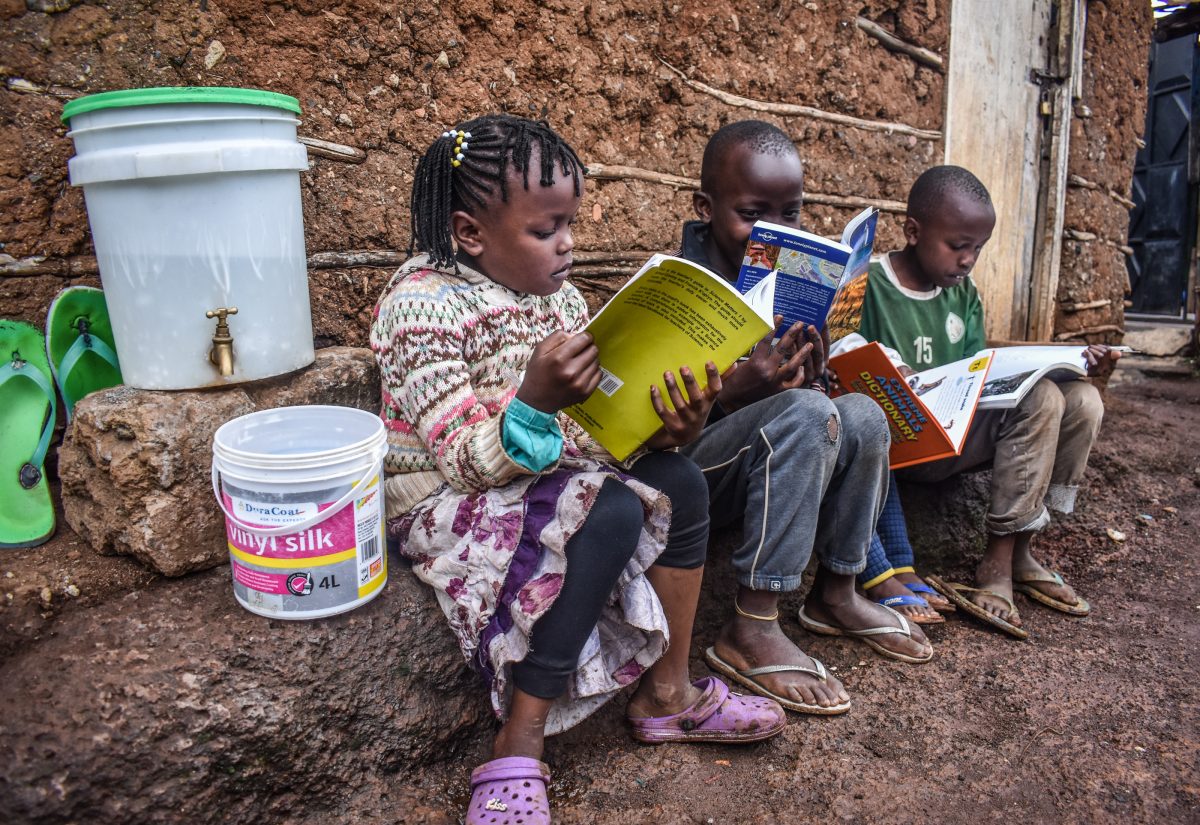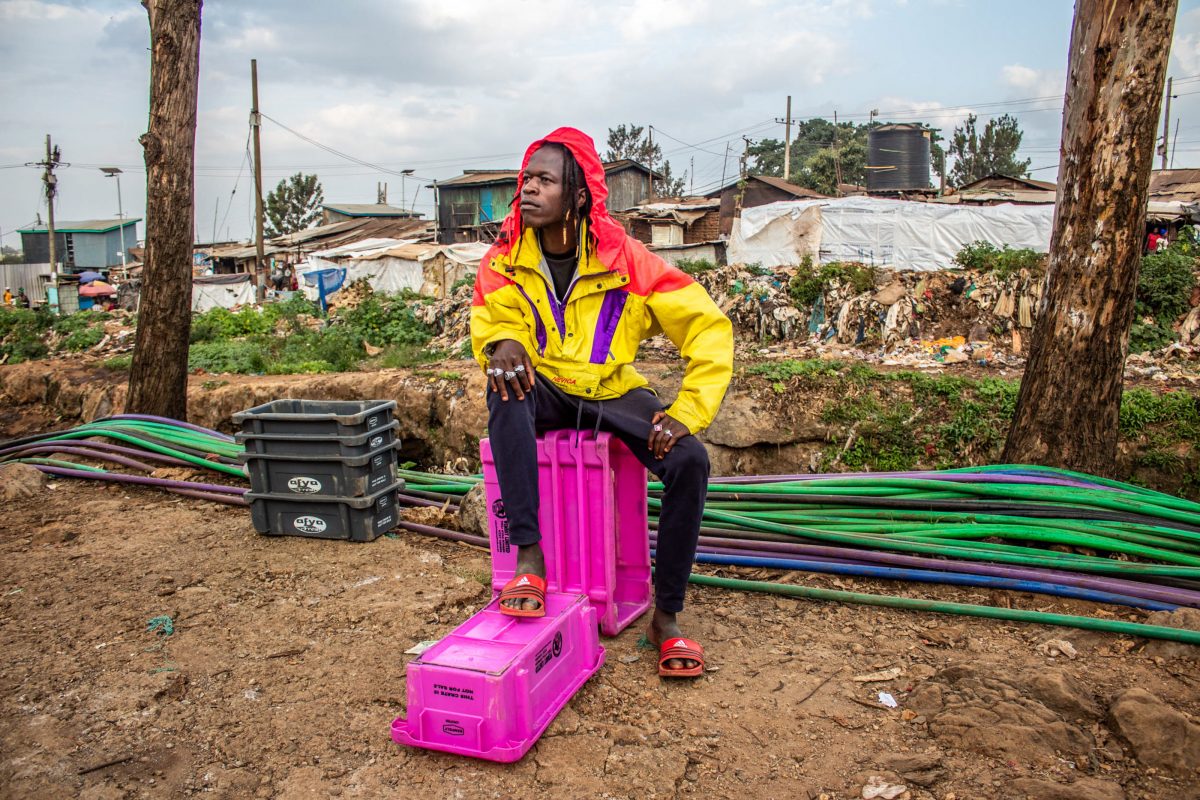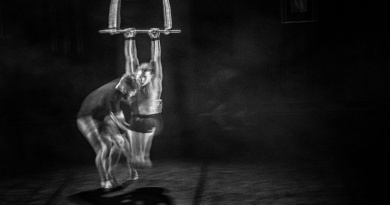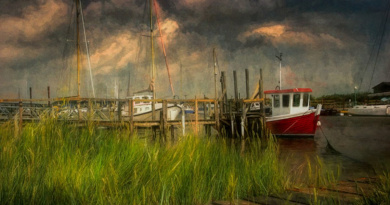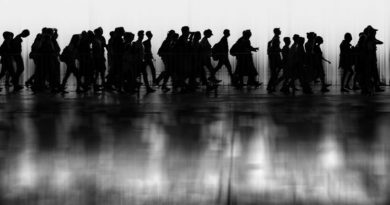Samson Otieno is a documentary photographer born and raised in Kibera, Nairobi, Kenya. His work focused on daily life, environmental, cultural, and socio-economic activities of day-to-day life. He is telling underreported stories of his own community.
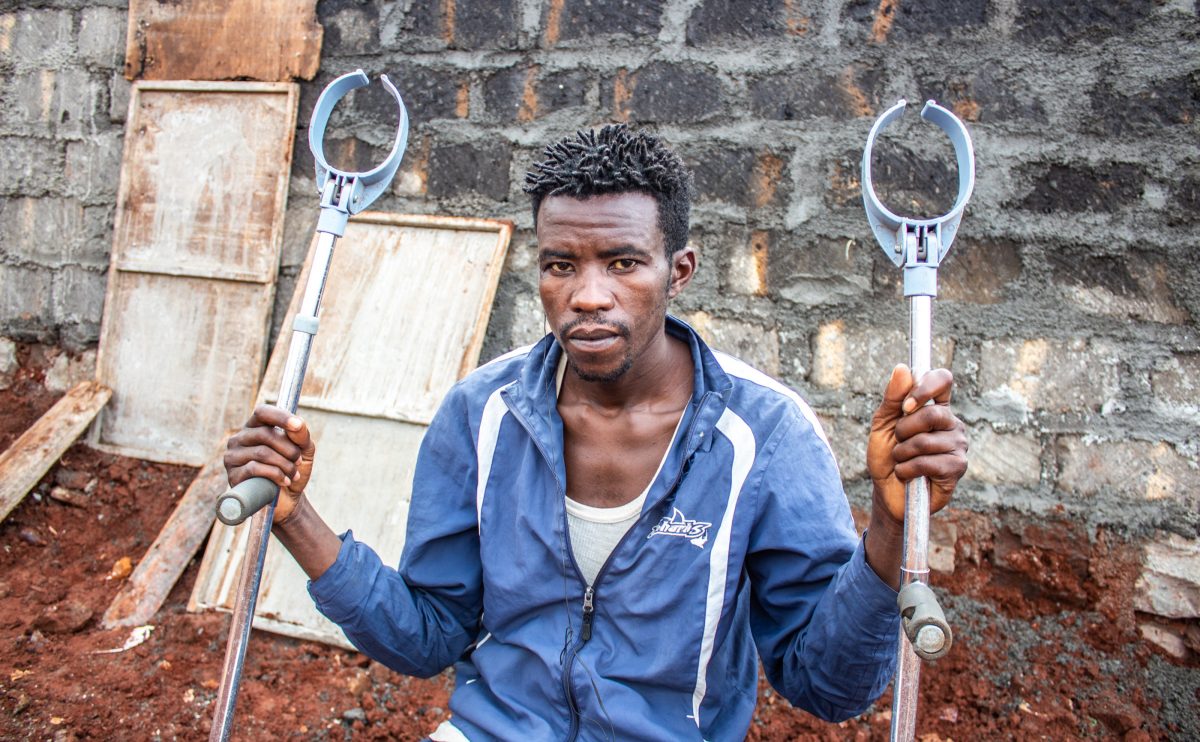
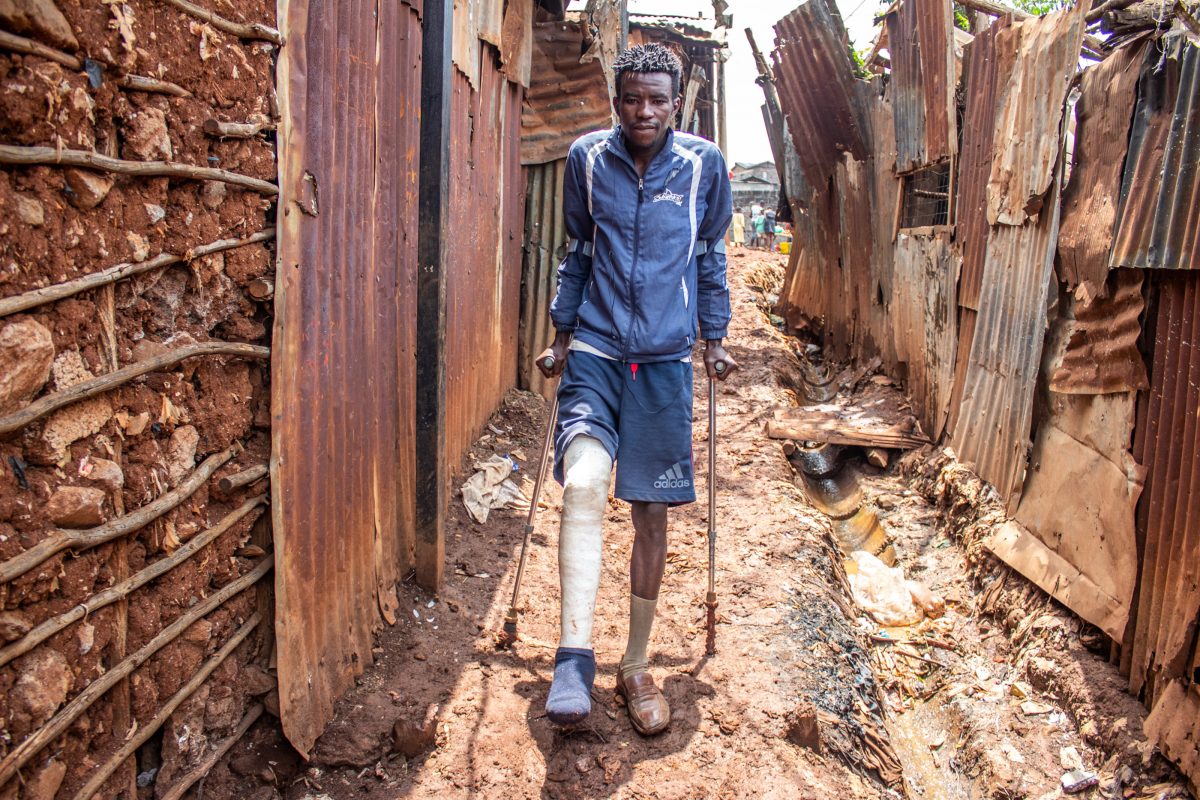
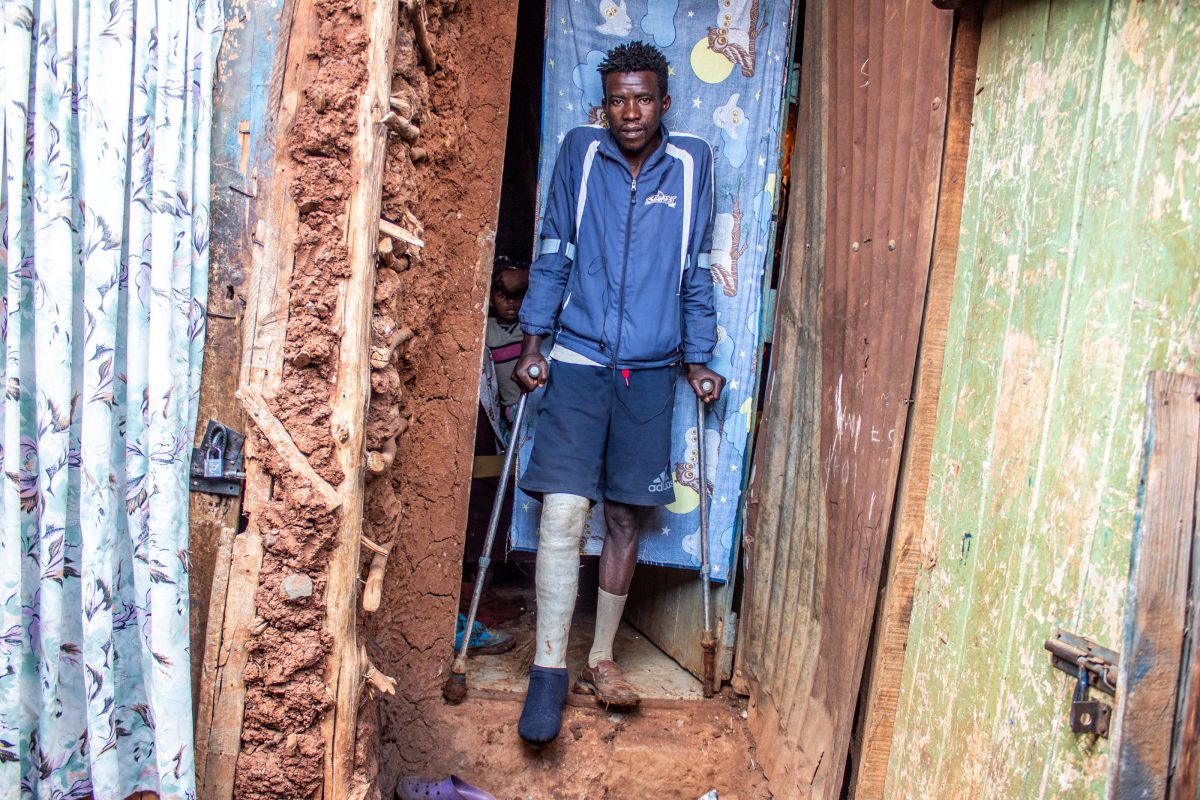
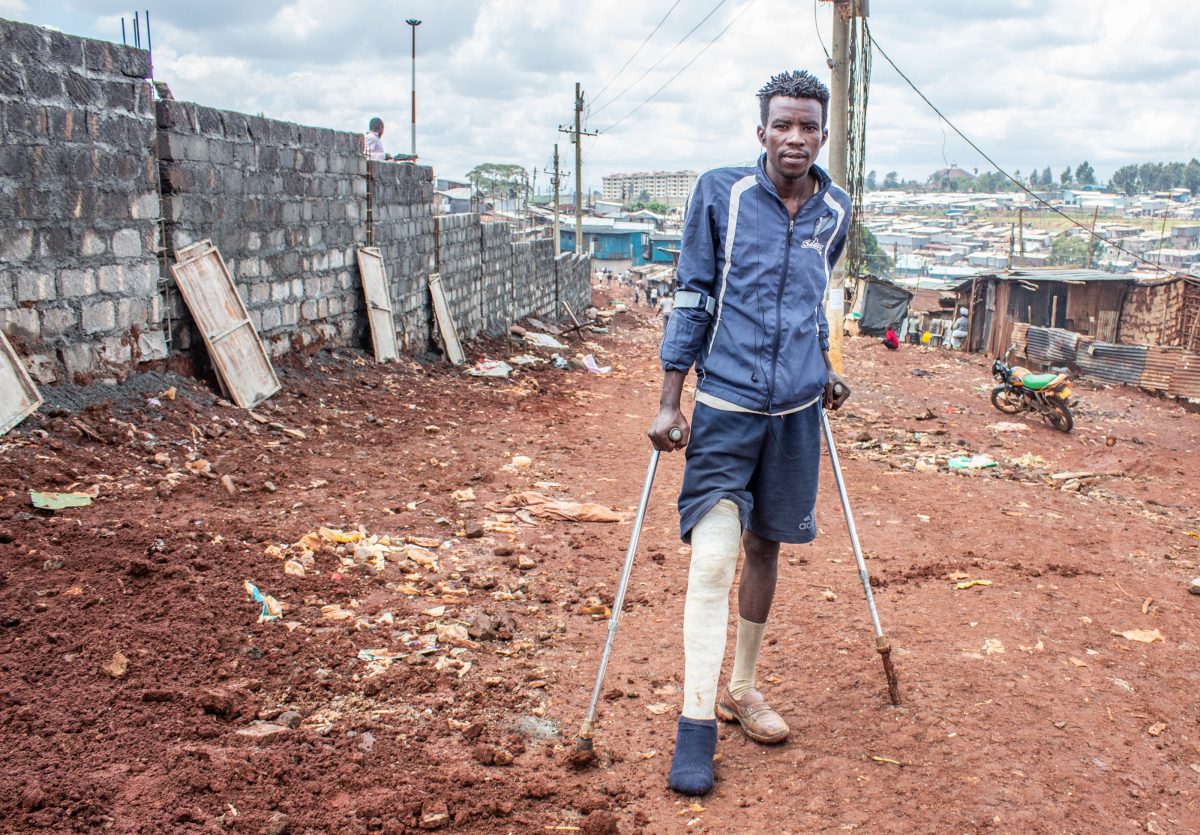

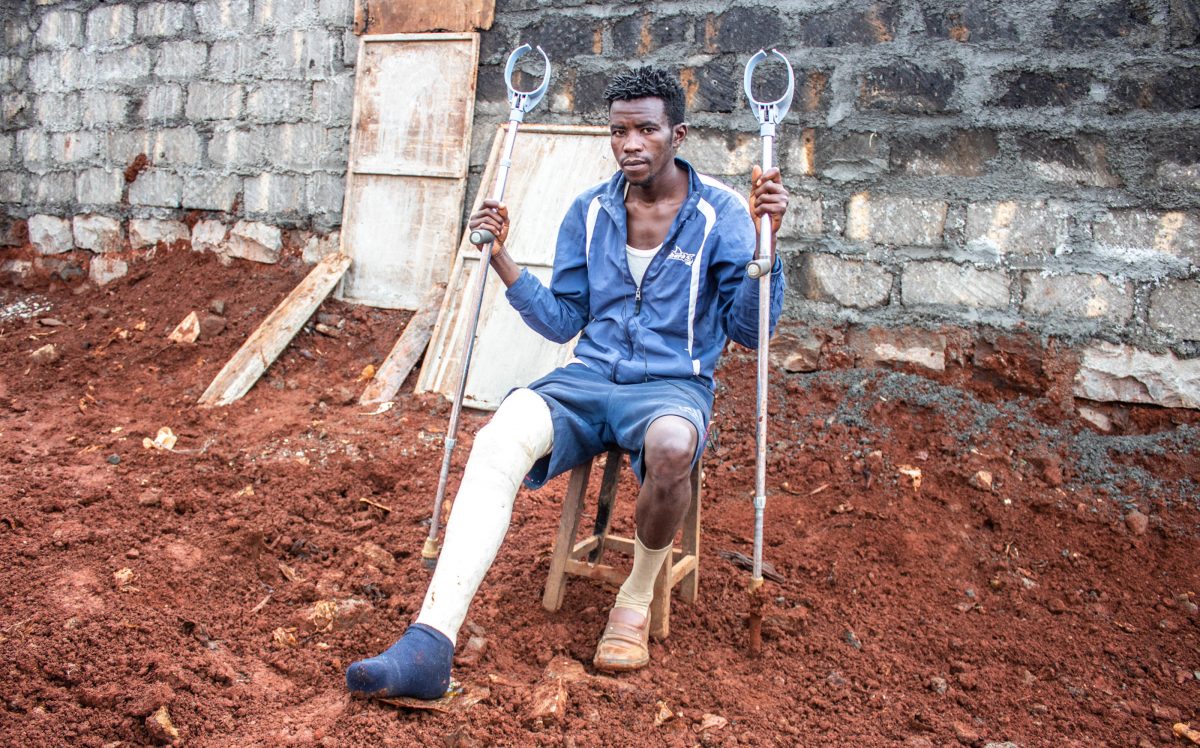
“I documented one of my neighbors Benson Mauti who is 30 years old and is raising four kids in Kibera slums. Benson got into a car accident when he was on his daily routine. Benson is a motorcyclist In Kibera.“
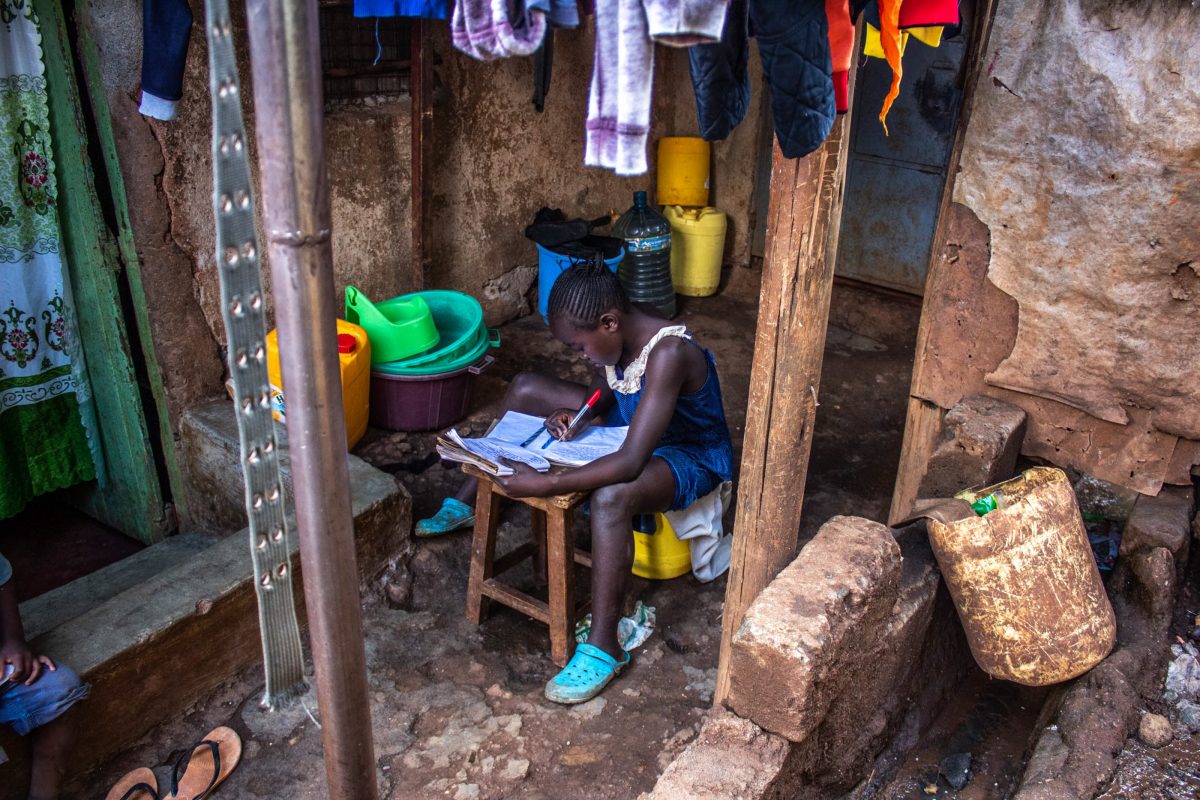
Education provides girls with the tools and skills they need to create a fairer future. Cynthia Atieno doing, her homework near their home.
Photo by Samson Otieno from the series Life in Kibera, on the outskirts of Nairobi #3 © Samson Otieno
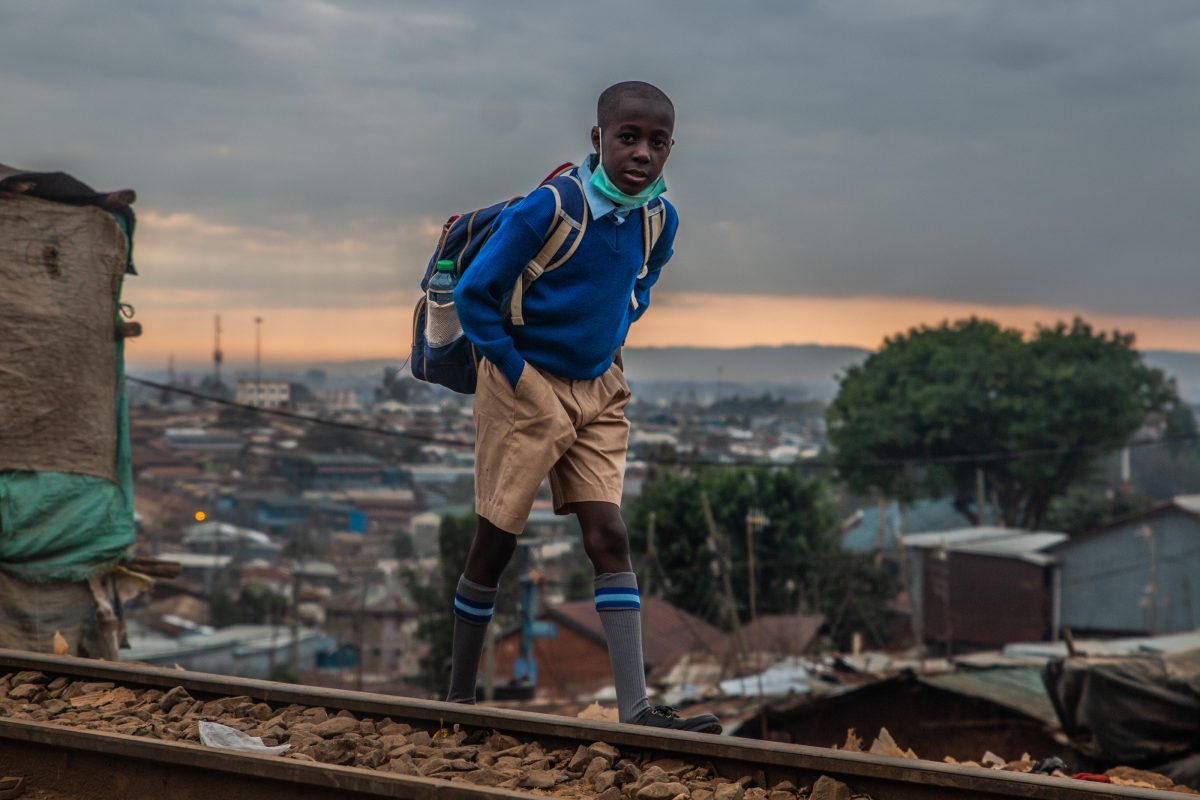
A student from Olimpic primary going to school during the reopening for their second term.
Photo by Samson Otieno from the series Life in Kibera, on the outskirts of Nairobi #3 © Samson Otieno
Samson Otieno’s photography has been the only place where he can open up his soul and expect his imaginations, ideas and change the global perception of different cultures, social status, es, and economic values. Kibera is Kenya's biggest informal settlement, situated on the outskirts of the capital city Nairobi. Roughly one million people live in the settlement, forming one-fifth of Nairobi's population. Poverty, crime, and disease have long dominated the narrative about this "Citi within a city", with residents being portrayed as living a marginal and precarious life. While the challenges of life in Kibera cannot be denied, a new generation of local artists and change-makers are challenging the common biases against the community and its residents, offering a new and honest perspective through music, art photography, and social work.

Brian Otieno is a photojournalist born and raised in Kibera. Through his project Kibera stories, Brian challenges the traditional visual narrative and negative perception about his hometown. His project documents life in Kibera from a social-economic, cultural, political, and environmental point of view, as seen from an insider perspective. " seen from afar, the neighborhood is a dense jungle of corrugated rooftop, indistinguishable huts huddled together and electricity poles projecting into the air. It holds the title of the"largest slum in Africa". But Kibera is also a mix of diversity, talent, and capability".
Photo by Samson Otieno from the series Life in Kibera, on the outskirts of Nairobi #1 © Samson Otieno

Art 360 is an art gallery located in the heart of Kibera, giving a creative platform to young independent artists from the neighborhood. The gallery was founded in 2019 by Faith Atieno, a young female painter, to identify, nurture, and marketing Young artists with a passion for arts and painting. Art 360 Is vocal in addressing issues that affect the community, such as economic inequality, extrajudicial killing, and political issues
Photo by Samson Otieno from the series Life in Kibera, on the outskirts of Nairobi #1 © Samson Otieno
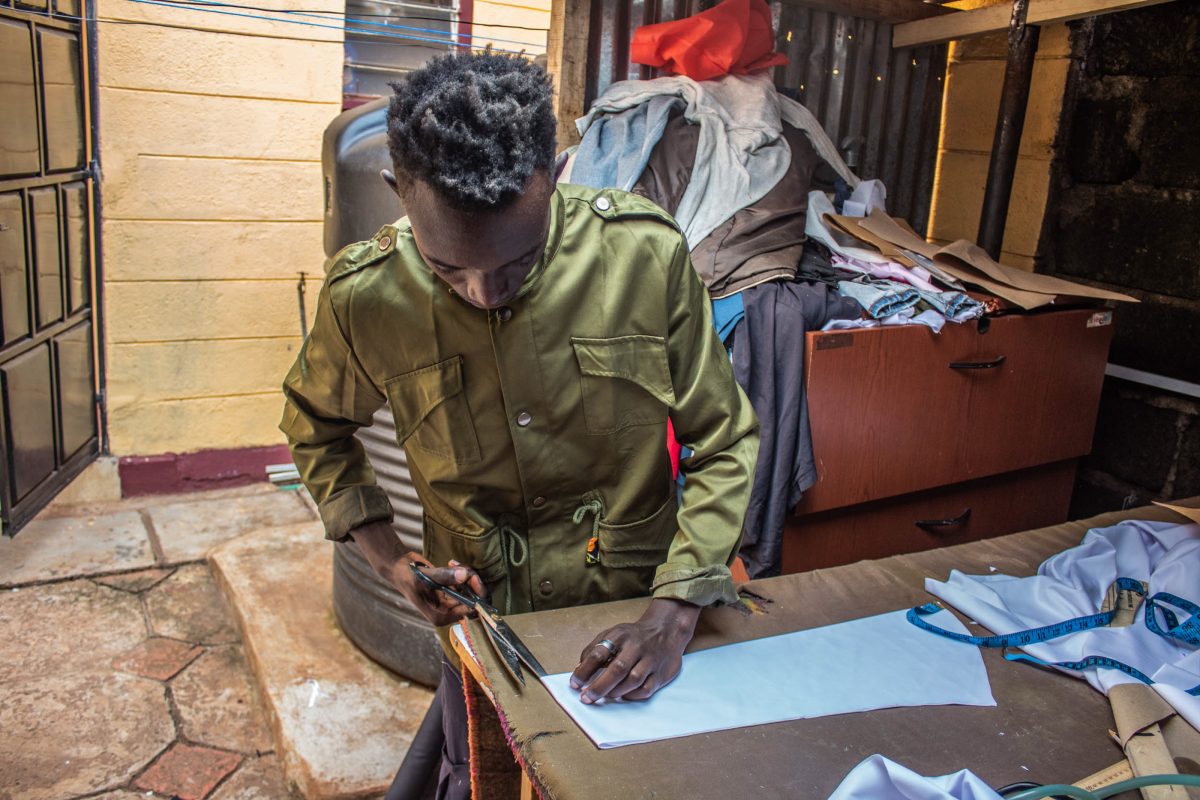
David Avido is a local fashion designer known for his signature wax-prints bomber jacket. He has made custom designs for a variety of musicians and reggae stars such as a rising Jamaica Singer Koffee. In 2020 he embarked on a new mission: leading a team of 12, he produced free face masks for the local community, as protective measures against the novel coronavirus. So far, in partnership with community leaders, he has distributed about 10,000 masks.
Photo by Samson Otieno from the series Life in Kibera, on the outskirts of Nairobi #1 © Samson Otieno

Asha Jaffa is the founder of the initiative Kibera food drive, created in 2020 to fundraise to provide food for families in kibera who have been severely affected by lockdown and movement restrictions imposed by the government to curb the covid -19 outbreak. As most residents depend on casual work to survive, staying at home is a privilege they can not afford. Kibera food drive has distributed food to 3,500 families so far.
Photo by Samson Otieno from the series Life in Kibera, on the outskirts of Nairobi #1 © Samson Otieno
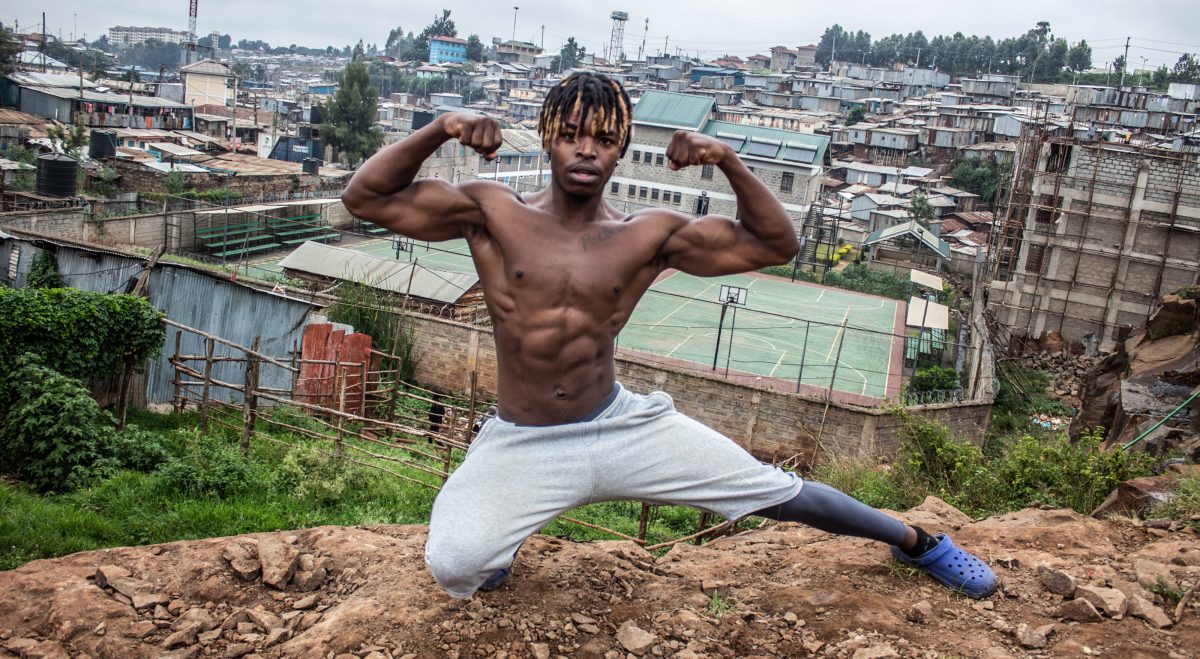
Vincent Otieno is a young bodybuilder who grew up in Kibera and developed a passion for fitness and a healthy lifestyle. He is inspiring youth in his neighborhood to stay away from crime and illicit activities by focusing on their health and well-being.
Photo by Samson Otieno from the series Life in Kibera, on the outskirts of Nairobi #1 © Samson Otieno
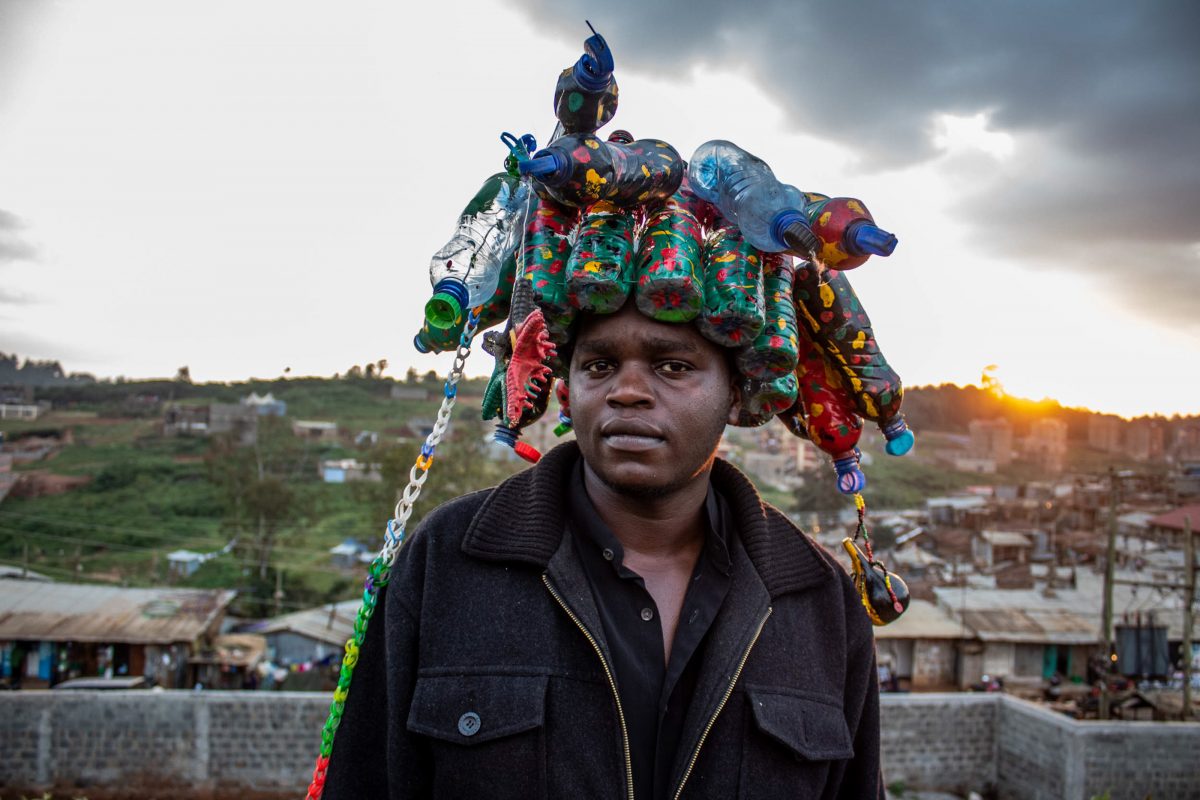
Slum going green and clean is a community-based organization founded in 2017 by Gisore Nyabuti. It started as a personal initiative to highlight the problem of environmental pollution in the slum. Having grown in Kibera all his life, Nyabuti saw a need to develop a solution that could address this problem in the community, while simultaneously promoting opportunities for social engagement for young people in the neighborhood. Slum going green and clean has grown to include 54 team members and works with hundreds of others to clean the environment and raise awareness on problems in the community such as open sewers and unauthorized dumpsites. "We plant food crops and fruit trees. We mobilize youths in the neighborhood, especially those with a criminal past, to join us on mass cleanup. We encourage the residents to take responsibility for caring for the environment and their health".
Photo by Samson Otieno from the series Life in Kibera, on the outskirts of Nairobi #1 © Samson Otieno

Daniel Owino is a local musician who goes by the artistic name Futwax. His music reflects the struggle and hope of his community: "It's my duty to make sure that everyone knows what is happening and are doing what they can to stay safe and live in peace. We have to be our solution".
Photo by Samson Otieno from the series Life in Kibera, on the outskirts of Nairobi #1 © Samson Otieno
Click on an image to open the gallery

Vincent Otieno is a young bodybuilder who grew up in Kibera and developed a passion for fitness and a healthy lifestyle. He is inspiring youth in his neighborhood to stay away from crime and illicit activities by focusing on their health and well-being. - Photo by Samson Otieno from the series Life in Kibera, on the outskirts of Nairobi #2 © Samson Otieno

I documented one of my neighbors Benson Mauti who is 30 years old and is raising four kids in Kibera slums. Benson got into a car accident when he was on his daily routine. Benson is a motorcyclist In Kibera. - Photo by Samson Otieno from the series Life in Kibera, on the Outskirts of Nairobi #8 © Samson Otieno

I documented one of my neighbors Benson Mauti who is 30 years old and is raising four kids in Kibera slums. Benson got into a car accident when he was on his daily routine. Benson is a motorcyclist In Kibera. - Photo by Samson Otieno from the series Life in Kibera, on the Outskirts of Nairobi #8 © Samson Otieno
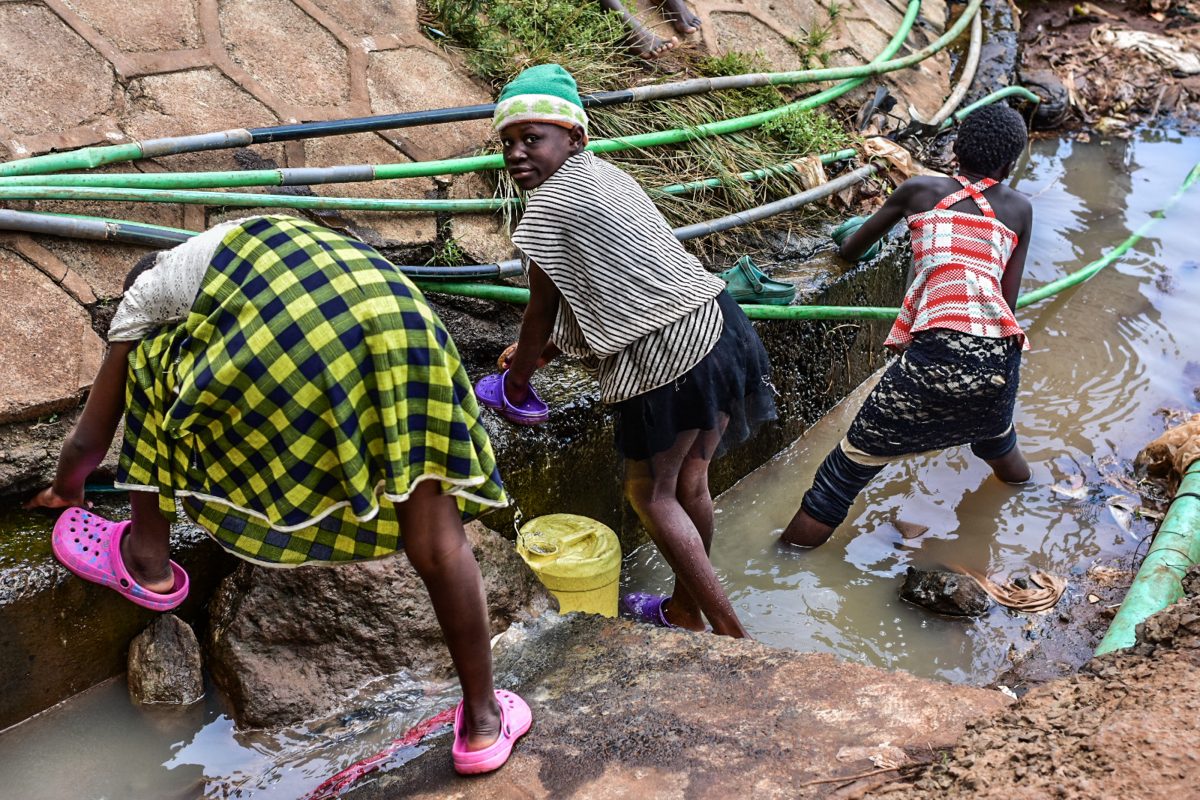
Girls fetching water from the leaking pipes. Water scarcity has always been a problem in Kibera, as most residents don’t have a connection to clean running water in their homes and they rely on communal water points which are often by the cartels. - Photo by Samson Otieno from the series Life in Kibera, on the outskirts of Nairobi #7 © Samson Otieno

I documented one of my neighbors Benson Mauti who is 30 years old and is raising four kids in Kibera slums. Benson got into a car accident when he was on his daily routine. Benson is a motorcyclist In Kibera. - Photo by Samson Otieno from the series Life in Kibera, on the Outskirts of Nairobi #8 © Samson Otieno

I documented one of my neighbors Benson Mauti who is 30 years old and is raising four kids in Kibera slums. Benson got into a car accident when he was on his daily routine. Benson is a motorcyclist In Kibera. - Photo by Samson Otieno from the series Life in Kibera, on the Outskirts of Nairobi #8 © Samson Otieno

I documented one of my neighbors Benson Mauti who is 30 years old and is raising four kids in Kibera slums. Benson got into a car accident when he was on his daily routine. Benson is a motorcyclist In Kibera. - Photo by Samson Otieno from the series Life in Kibera, on the Outskirts of Nairobi #8 © Samson Otieno

Vincent Otieno is a young bodybuilder who grew up in Kibera and developed a passion for fitness and a healthy lifestyle. He is inspiring youth in his neighborhood to stay away from crime and illicit activities by focusing on their health and well-being. - Photo by Samson Otieno from the series Life in Kibera, on the outskirts of Nairobi #2 © Samson Otieno
Samson Otieno
is a young documentary photographer based in Nairobi, Kenya. He was born and raised in Kibera where he documents the everyday life of ordinary people. His work focuses on daily life, environmental, cultural, and socio-economic activities of day-to-day life.
His passion in photography is to capture the underreported stories of his community. He is a self-taught documentary photographer; He was among the participant who received 2-months of mentorship and training in photojournalism, professional guidance, and insight into their work, as well as support in developing personal projects on March 5, 2021.
He was selected for a portfolio review in French Embassy where he got a chance to some face-to-face professional feedback from the award-winning French photographer, Frederic Noy. Winner of the 2019 visa d’Or Feature Award at the annual visa pour l’lmage photojournalism festival, Perpignan France, and awarded 3rd place in the Environmental category of the 2020 world press photo contest and Thomas Mukoya senior picture editor-East Africa for Reuters.
Some of his work has been exhibited in Lviv, Ukraine autumn of 2020, and Mathare 4A, Nairobi, Kenya 2021. He got interested in photography back in 2015 when art kids' foundation opened a class of photography where it was only taking people from Kibera and he was among the people who were selected for the classes, it only went for a year.
After finishing high school in 2019, He decided to do what he was passionate about photography. He knew a few friends who are doing photography and he was eager to start learning from their kinds of Brian Otieno (Kibera stories) and Natalia Jidovanu a photojournalist and a founder of the art kids' foundation.
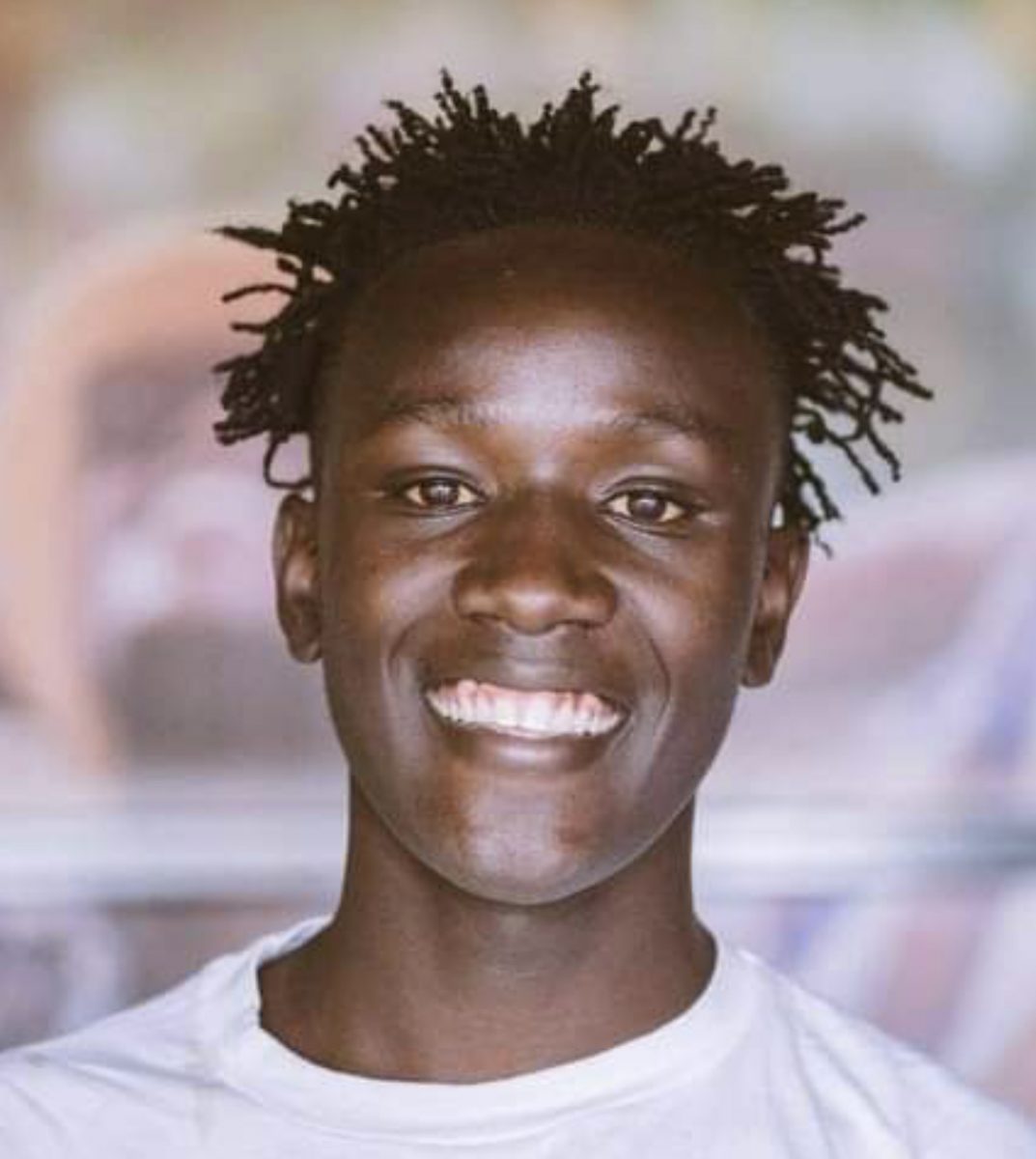
Samson Otieno
Journalism and running an online magazine costs money. Our online magazine is free of advertisements. We do everything out of love and dedication. We are not profit oriented. Support Tagree that the magazine remains ad-free and the monthly costs can be paid. TAGREE, I love your cultural work, I donate to show you my appreciation, voluntary, one-time or regular monthly or per quarter:


